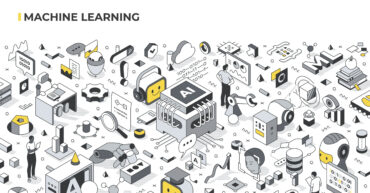Why Artificial Intelligence (AI) has become an increasingly popular topic in healthcare
- October 15, 2024
- Posted by: Kulbir Singh
- Category: Artificial Intelligence Healthcare Tech

Why Artificial Intelligence (AI) has become an increasingly popular topic in healthcare
- October 15, 2024
- Posted by: Kulbir Singh
- Category: Artificial Intelligence , Healthcare Tech ,

In recent years, the topic of artificial intelligence (AI) in healthcare has grown in popularity. Healthcare professionals and researchers are aware of how AI has the potential to revolutionize patient diagnosis and care as well as medical research.
Artificial intelligence (AI) is the capacity of machines to carry out operations that ordinarily require human intelligence, such as speech recognition, visual perception, language translation, and decision-making.
AI can be used in the healthcare industry to analyze vast volumes of medical data, spot patterns and trends, and generate forecasts and suggestions.AI can also be utilized to personalize treatment strategies and enhance patient care.AI algorithms can forecast which medicines are most likely to be successful for each individual by looking at their medical history, genetics, and lifestyle factors.
Precision medicine is a method that can enhance therapeutic results while lowering the possibility of negative side effects.
Advantage & Disadvantage
- AI has the potential to speed up medical research as well as patient care.
- In order to find novel illness treatments and cures, researchers can utilize AI algorithms to evaluate vast amounts of data, including patient records, medical pictures, and genomic data.
- This strategy can be used to find patterns and trends that would be hard to find or impossible to find using conventional research techniques.
- One worry is that AI could result in job losses for healthcare professionals, especially in fields like medical diagnostics and imaging.
- Though many experts disagree, many agree that AI will improve the work of healthcare professionals by freeing them up to concentrate on more difficult duties like patient care and treatment planning.
- The possibility that AI is occasionally inaccurate or unreliable is another worry.
Before being implemented in clinical settings, it’s critical to make sure AI algorithms have undergone extensive testing and validation. Also, patient data must be kept private and safe by healthcare professionals and researchers.
To sum up, AI has the ability to completely transform the healthcare industry by enhancing patient care, advancing medical research, and lowering healthcare expenses. The meticulous testing and validation of AI algorithms, as well as strong data security and privacy regulations, can all help to allay some of the worries that have been raised about the use of AI in healthcare.
The future of healthcare promises to be more individualized, effective, and efficient as we create and improve AI technology.
A Large Language Model (LLM) is a type of deep learning model trained on massive text datasets to understand and generate human language.
Humans and artificial intelligence (AI) have been contrasted and compared frequently.Some worry that AI will drive people out of many professions, while others argue that AI will never fully replace human intelligence and creativity.
Autonomous vehicles, also known as self-driving cars, are like smart robots that can drive themselves without a human driver.



